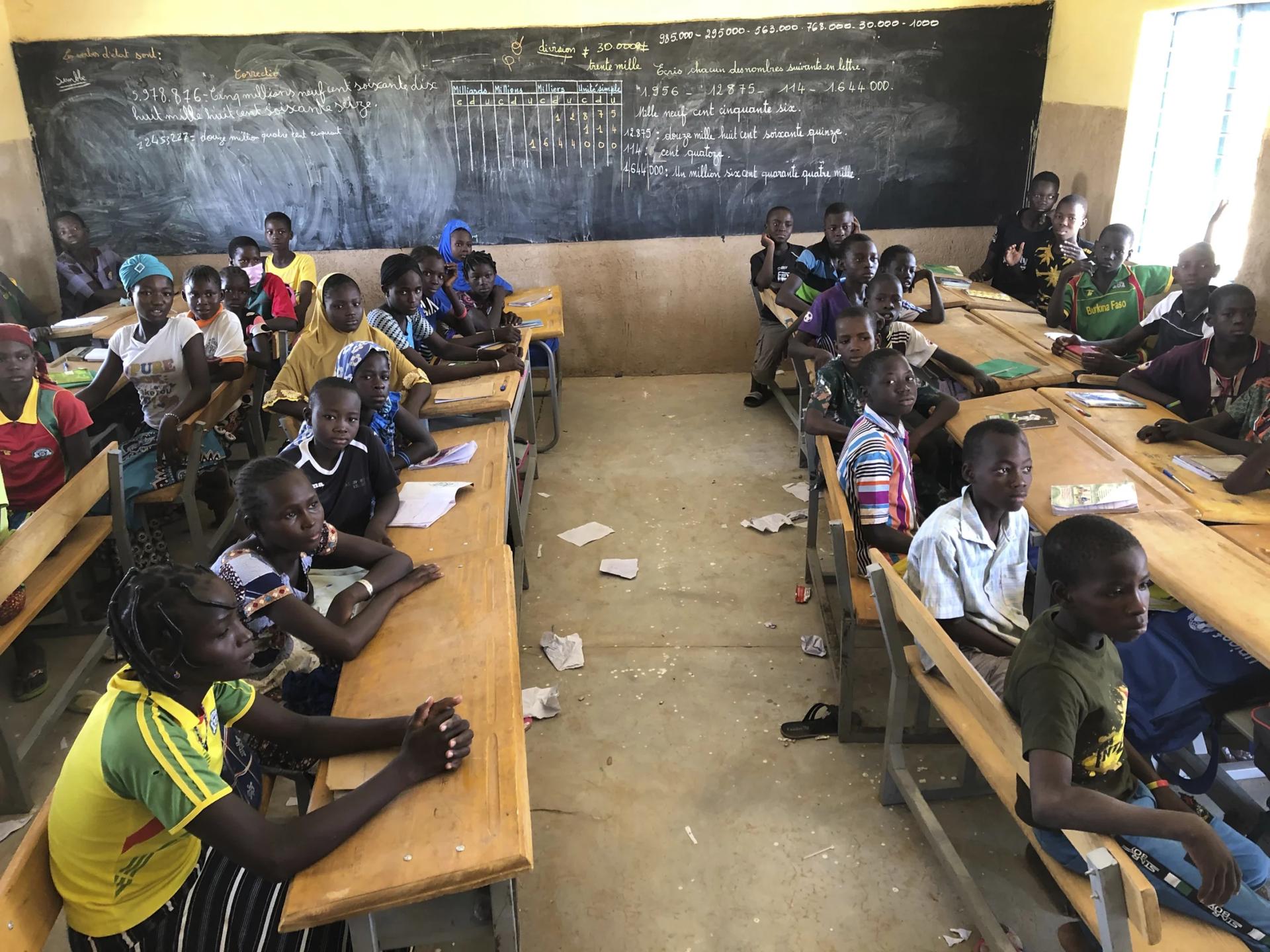YAOUNDÉ, Cameroon – August 28 was observed as a day of mourning in the Diocese of Kaya in the African nation of Burkina Faso, following an August 24 terrorist attack in the town of Barsalogho which killed nearly 200 people, including 22 Christians.
Local media reported that residents of the Barsalogho community, located around 20 miles north of Kaya – the capital of the Centre-Nord region – were digging defensive trenches to protect themselves against terrorist attacks, when more than 100 jihadists appeared on motorcycles and opened fire with automatic weapons on civilians and soldiers alike.
Women, children and elderly people were among those killed. The Al Qaeda-linked militant group known as Jama’at Nusrat al-Islam wal Muslimin (JNIM) is suspected to have carried out the murders.
Kaya serves as the final military stronghold between JNIM fighters and the capital, Ouagadougou. Following the attack, several soldiers are unaccounted for as JNIM continues its advance, capturing large areas of territory in the conflict-ridden West African nation.
Burkina Faso is located in Africa’s Sahel region, which separates North Africa from Sub-Saharan Africa. The area has been plagued by instability made worse by several concurrent Islamist insurgencies.
Burkina Faso has one of the largest Christian populations in the Sahel, making up nearly a quarter of the population.
Saturday’s attack was the third in Burkina Faso this month, and is the bloodiest in the country’s history. On August 4, armed men stormed Nimina village and abducted over 100 men between the ages of 16 and 60. Their whereabouts is still unknown. On August 20, terrorists struck the villages of Mogwentenga and Gnipiru, forcing the population to flee.
The Kaya bishop described it as a “tragedy of an unprecedented scale in our region, and indeed in the whole of Burkina Faso, since the terrorist attacks began” in 2015.
In a release August 27, the bishop expressed his spiritual closeness with the affected families, and urged them not to despair, but turn to the God of Mercy for help.
“We are all well aware that what is happening to us is the consequence of intolerance, of our rejection of God’s law of love, of our injustices, of our complicity with evil and with wrongdoers,” Bishop Théophile Nare said.
“None of this can be justified in any way,” he added.
“Therefore, while I offer you my encouragement, I would also like to exhort you to penitence and conversion so that the God of Mercy may give us the healing and consolation that we expect from Him,” the bishop said.
The attack has solicited reactions from across the globe. The Bishop of Nimes in France wrote in a condolence letter to his colleague of Kaya said he was saddened by the news of the “tragic massacre.”
“We are at a loss for words to express our dismay and deep sadness. We stand at your side, yours and that of all the people of Burkina Faso,” wrote Bishop Nicolas Brouwet.
United Nations Secretary General Antonio Gutterrez has roundly condemned the attack and expressed solidarity with the victims.
“The Secretary-General expresses his solidarity with the transition authorities in their fight against terrorism and calls on them to ensure that those responsible for these despicable acts are held to account”, said UN Spokesperson Stéphane Dujarric on behalf of the Secretary General.
In his August 27 release, Nare declared August 28 a Diocesan Day of Mourning for what he called “our martyrs.”
“We cannot fail to weep for our dead, as Holy Scripture exhorts us to do: ‘My son, pour out your tears for the dead… weep bitterly, cry out your grief, observe mourning as the dead deserve’ (Si 38:16-17),” the bishop writes.
“With this brief message, I therefore urge you to observe Wednesday 28 August as a diocesan day of mourning for our martyrs, whether they are Christians (there are already 22 Christians that the community of Barsalgho has buried) or of other religious affiliations,” Nare said.
The bishop also announced Triduum of prayer – including Mass, adoration of the Blessed Sacrament, and a community rosary – from August 29-31 “to implore the grace of the conversion of creatures and for reparation for all the attacks on human life, all the innocent blood spilt like water by mankind.”
He underscored the need for the Church to speak out when such tragedy strikes, noting that “we cannot remain silent and prostrate for long before the immense tragedy of Barsalgho.”
“We need to speak out (to God and among ourselves) and take action so that, with God’s help, there can be no more the cry of “never that again,” Nare said.
Groups linked to al-Qaeda and the Islamic State began their murderous campaign in Burkina Faso in 2015. Thousands of people have been killed as a result, with 2023 alone recording over 7,000 deaths, and the displacement of more than two million people.
The latest attacks further highlight the worsening security situation in the Sahelian country, with no end in sight.














